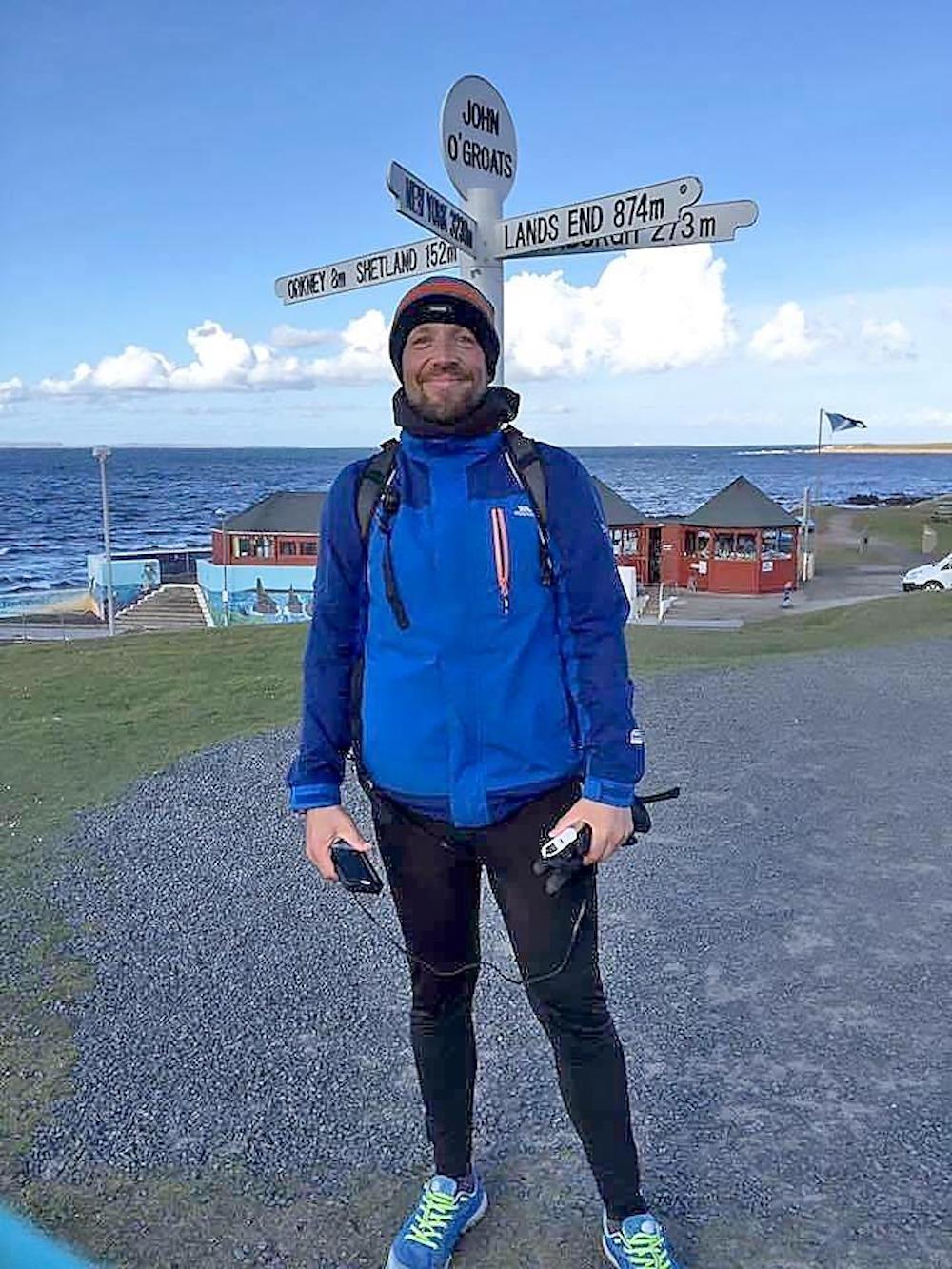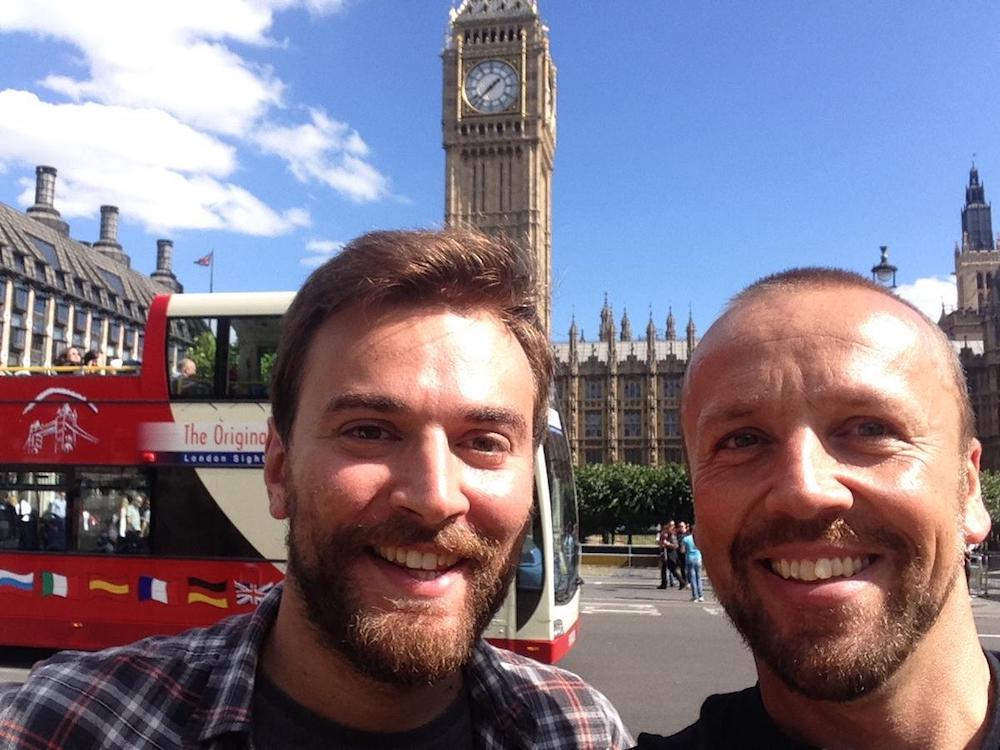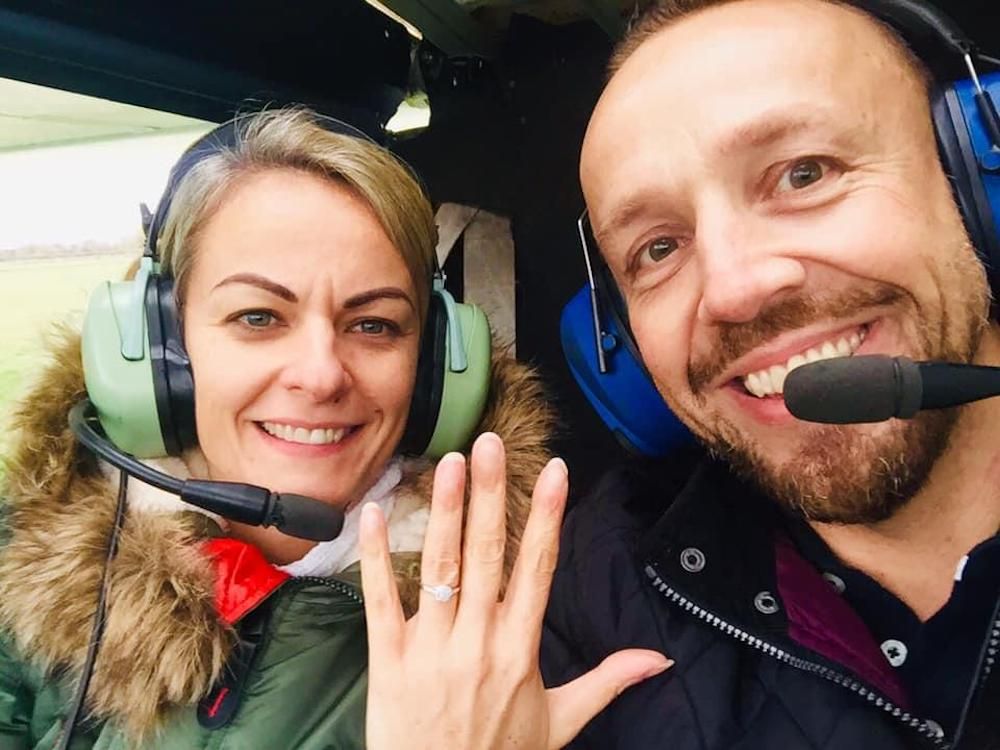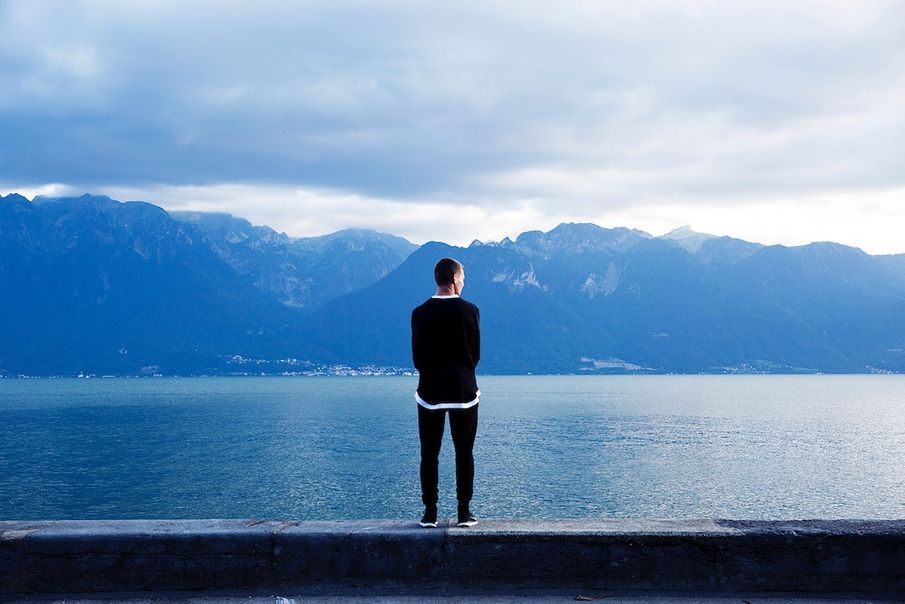After a traumatic incident shook the lives of Steve Carr and his family, he realised nothing would be the same again. Steve ended up homeless and addicted to drugs. But admitting he had a problem was the first step, and with that momentum he kept going
I’ve experienced childhood trauma, anxiety, depression, stress, addiction, and borderline post-traumatic stress disorder (PTSD), and I didn’t even know it until my mind and body couldn’t take any more. I had a nervous breakdown at work, and then tried to take my own life three times in one month.
Now, I’m a 42-year-old entrepreneur, with two successful businesses: Mindcanyon (mental health education specialists), and Steve Carr Mentoring (helping individuals with corporate burnout). But it was a long road to get here.
I grew up in Swindon, Wiltshire, with my mother, father, my older brother Paul, and younger sister Claire. Times were tough in my teens; we lived in a three-bed terraced council house in the middle of a very rough street. It wasn’t easy, and I was subjected to many traumatic experiences – from being mugged at 14 years old, to seeing my mother and father beaten up.
I shared a bedroom with my brother, who I always thought was slightly odd as he listened to heavy metal. I, on the other hand, was into rave music, so it’s easy to see why we clashed.

Steve Carr
On Friday 13 September 1991, when I was just 15 years old, my life changed forever when my brother was tragically killed, along with four other children, by a reckless driver in the Akers Way horror crash in Swindon.
My brother Paul, 16, Belinda Brown, 19, Paula Barnes, 15, Sheree Lear, eight, and seven-year-old Ian Lilley were playing on the grassed area off Akers Way, when the driver lost control of his car at high speed, and crashed into the group. The tragedy shook the community and provoked fury among campaigners who had long been calling for a lower speed limit, and other safety measures on the road. My life and my family’s were torn apart.
After my brother’s death, I masked the trauma with alcohol, cigarettes, and drugs. My family life had changed, we were drifting apart, and it felt like we were all walking around in a daze.
A year after the event, my family could no longer bear to be in the same house that we grew up in – the memories were too raw, and especially as I shared a bedroom with my brother, knowing I would never see him again was mental torture. We moved to a beautiful village on the outskirts of Swindon, but it didn’t ever feel like home without my brother. We were all fighting with each other because we didn’t know how to deal with the trauma and bereavement. My parents ended up divorcing.
At 16 years old, I was losing control of my life, and my father couldn’t deal with my erratic behaviour, so he told me that I had to leave. I was a teenager with no clue about money, finances, or the world, told I had to leave the family home. This hit me like a brick.
I lost contact with my family, I couldn’t hold on to any form of relationship for long periods of time due to the fear of loss and rejection, and as fast as I was gaining friends, jobs and relationships, I was quickly losing them.
During my early 30s, things started to look up for me. I made contact with my father again, and asked if I could come home to save for a house. I was so pleased when he said yes. I was doing extremely well at this point, working as a business development manager for a large corporate company, and eventually had my own house, car, and was in a happy relationship.
With everything going well, I became a bit of a socialite. I was always out with friends partying and drinking at weekends, and on one particular night I was introduced to cocaine. I had one line and that was it, I was hooked.
I started taking cocaine every day, and even took £20,000 equity out of my house to feed my habit. I quit my job, lost my partner, pushed my friends away, stopped paying the mortgage, and ended up selling everything in my house to feed the habit. The house was eventually repossessed; I had lost it all.

Steve with Jonny Benjamin
I became homeless and was living on the streets, but luckily it was only for a couple of nights as an old friend found me and helped me out. How did I let my life get this way?
I was a homeless drug addict, with nothing more than what I was wearing to my name. My habit continued until I was 39 years old, flitting in and out of jobs, unable to concentrate or forge any lasting relationships. I couldn’t stop what I was doing to myself, until one day I pushed it too far.
With a concoction of alcohol and drugs, including cocaine, methadrone, and legal highs, I attempted to take my own life, three times in one month. I now knew I had to get help. I didn’t want to die, I just wanted the pain to end.
Going to my GP was the only thing for it. I sat in his office, shaking, barely able to speak, shivering. I mustered up enough courage to say: “Please help me. I can’t go on like this. I don’t want to live like this. I’m a drug addict.”
That was it, I had said it out loud. I felt like the weight of the world had been lifted from my shoulders. This would start a process of therapy and clinical help, from [counselling(https://www.counselling-directory.org.uk/), NLP, cognitive behavioural therapy, hypnosis, and personal development.
I was diagnosed with high-functioning anxiety, depression, childhood trauma, stress, and borderline PTSD. The catalyst for recovery was remembering all the good times I had as a child, which sparked something in me, and I chose life.

In October 2018 Steve popped the question to his partner Monike... and she said yes!
I was offered medication, but I didn’t want to mask my mind further with prescription drugs. I chose to go cold turkey and walk the length of Britain to find out what help was available for me, and to meet people like me who were struggling with mental health issues.
After 90 days of self-discovery and shaking, living in a tent, and sleeping in
weather conditions that would sink below minus four some nights, I had done it. The help, support and assistance I received was staggering; it changed my life. On my return, I knew it was just the beginning of my recovery.
In the name of mental health, I went on to do so much, including: cycling 1,500 miles through seven countries in Europe over 11 days, to raise money for charity; cycling 350 miles from Liverpool to Lands End in four days, to raise awareness for PTSD; and running 70 miles from Hungerford to Buckingham Palace for World Mental Health Day 2017.
I also went on to create my businesses, Steve Carr Mentoring and Mindcanyon, to support people’s mental health. I’ve also qualified as a private pilot, a youth mental health first aider, as well as gaining counselling and coaching skills.
I’m now one of the UK’s most physically active mental health campaigners, and an inspirational speaker and mentor. These achievements have all been while in recovery, in just under three years – and are a result of losing everything.
Recovery is possible, especially when we are offered hope, support, time and love.
I had a chance to start over, and that’s exactly what I did – walking away from things and people that were no longer serving me. I’ve learned that I am the most important person in my world, I’ve set healthy boundaries, and I have amazing friends and a life I am now proud of.
After multiple childhood traumas, and a turbulent adulthood wrecked by addictions and mental health problems leading to multiple suicide attempts, I emerged a man with a mission to change the world of mental health, to make sure no one has to face the adversity I had. I’ve chosen to give meaning to my life through helping others, leading to my current vision to help people around the world build and live lives of meaning and purpose beyond adversity.
If you can’t offer anything else, offer hope.
Graeme Orr | MBACP (Accred) UKRCP, Reg Ind counsellor, says:
Traumatic and significant losses in Steve’s early life caused his world to collapse. Help from his father let him recover only to lose everything again to addiction. He starts therapy connecting with the good from his past as well as the bad. As with many people, the recovery process is tough, but he gets through it with help and support. It’s difficult to accept help but, as in Steve’s case, it can make the difference. He feels passionate about the transformation, training to make it possible for others as well.


Comments